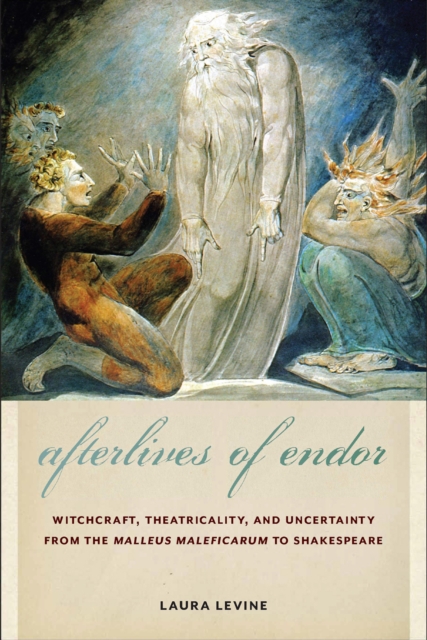
Afterlives of Endor : Witchcraft, Theatricality, and Uncertainty from the "Malleus Maleficarum" to Shakespeare PDF
by Laura Levine
Description
Afterlives of Endor offers an analysis of the way early modern English literature addressed the period's anxieties about witchcraft and theatricality. What determined whether or not a demonologist imagined a trial as a spectacle? What underlying epistemological constraints governed such choices and what conceptions of witchcraft did these choices reveal? Pairing readings of demonological texts with canonical plays and poetry, Laura Levine examines such questions. Through analyses of manuals and pamphlets about the prosecution of witches-including Reginald Scot's skeptical The Discoverie of Witchcraft (1584), King James VI/I's Daemonologie (1597), and Jean Bodin's De la Demonomaniedes Sorciers (1580)-Afterlives of Endor examines the way literary texts such as Shakespeare's The Winter's Tale and The Tempest, Spenser's The Faerie Queene, and Marlowe's Tragicall History of Doctor Faustus address anxieties about witchcraft, illusion, and theatricality. Afterlives of Endor attends to the rhetorical tactics, argumentative investments, and underlying tensions of demonological texts with the scrutiny ordinarily reserved for literary texts.
Information
-
Download - Immediately Available
- Format:PDF
- Pages:192 pages
- Publisher:Cornell University Press
- Publication Date:15/11/2023
- Category:
- ISBN:9781501772191
Other Formats
- Hardback from £116.00
- Paperback / softback from £20.85
- EPUB from £14.75
Information
-
Download - Immediately Available
- Format:PDF
- Pages:192 pages
- Publisher:Cornell University Press
- Publication Date:15/11/2023
- Category:
- ISBN:9781501772191






